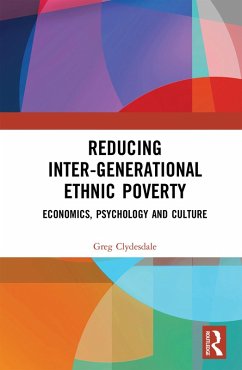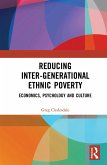The book begins by looking at cultures and assimilation and investigates the link between education, culture and socio-economic status. It also attempts to answer the question of what the link between culture, parents and children's ability is and why ethnic groups vary in their nurturing. It delves into how parenting and cognitive development are interrelated.
This thought-provoking book concludes with an emphasis on nurture and how it may alleviate ethnic poverty and shape social policies. The book provides a strong thesis to counter explanations based on racial and genetic superiority.
Dieser Download kann aus rechtlichen Gründen nur mit Rechnungsadresse in A, B, BG, CY, CZ, D, DK, EW, E, FIN, F, GR, HR, H, IRL, I, LT, L, LR, M, NL, PL, P, R, S, SLO, SK ausgeliefert werden.









